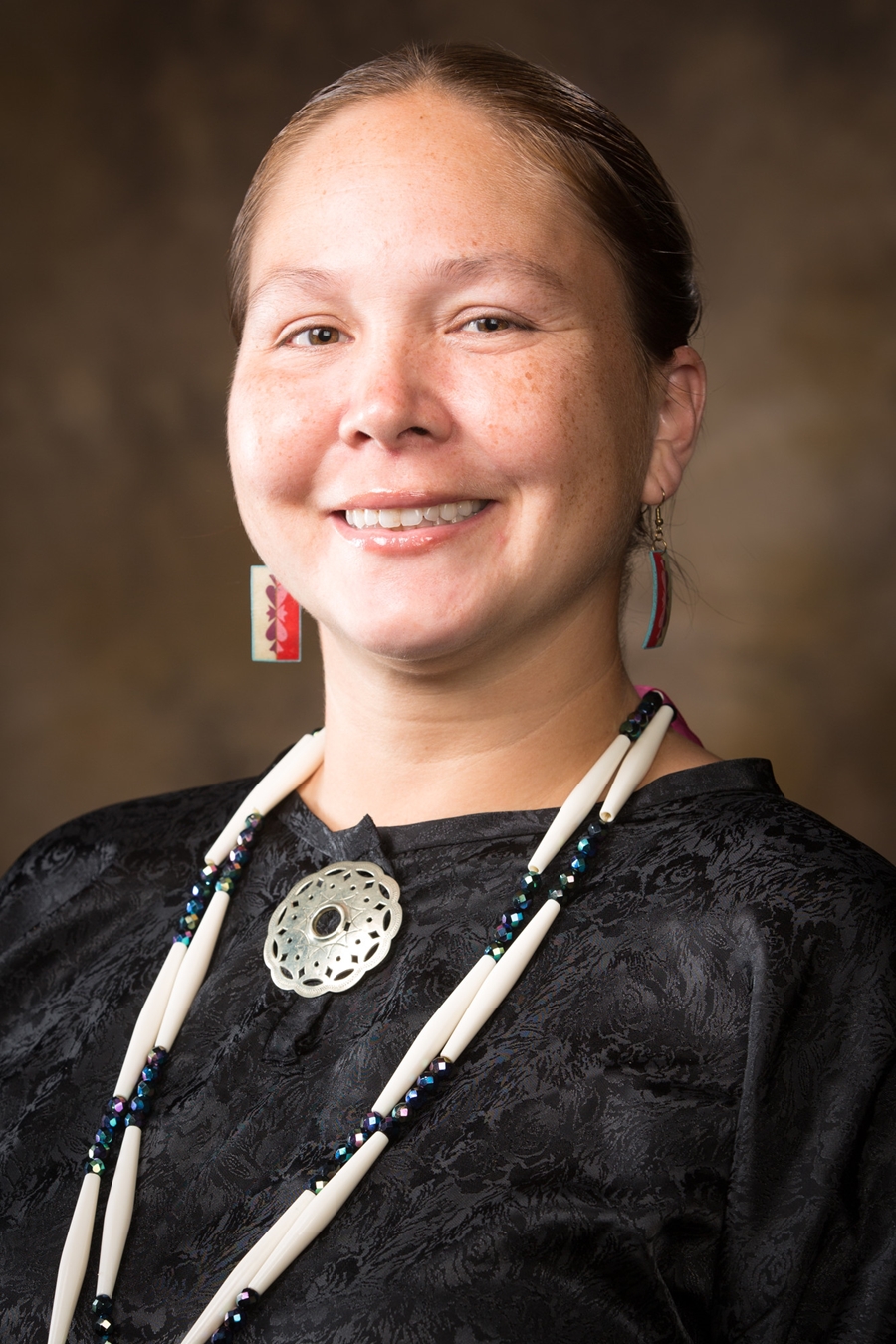FAYETTEVILLE, Ark. – Electa Hare-RedCorn, a first-year University of Arkansas doctoral student in public policy, has been selected as a Robert Wood Johnson Foundation Health Policy Research Scholar.
She is one of only 40 students selected for the prize nationwide. Hare-Redcorn plans to focus her research on indigenous food sovereignty, health and agriculture policy that will benefit ancestral and contemporary tribes and communities in Northwest Arkansas and the greater region. She hopes to identify knowledge gaps and policy considerations that will help combat chronic disease and obesity related to classic food systems in those tribal communities.
“I want to help tribes realize they can adopt their own food and agriculture codes,” she said. “It’s about getting back to the understanding that we all have a role to play in our food systems and understanding that we all deserve healthy foods and access to healthy foods.”
The award is valued at $120,000 and is disbursed over a five-year period.
Hare-Redcorn, a member of the Pawnee Nation and an Oklahoma native, earned a bachelor’s degree from Cameron University and a master’s degree in social work from Washington University in St. Louis. She chose to change her career path and pursue a doctoral degree after serving as a mentor at the University of Arkansas Indigenous Food and Agriculture Initiative Youth Summit.
“I was amazed at the level of knowledge of these young people and amazed by the passion they had for making the world a better place,” Hare-RedCorn said. “That one summer of exposure to indigenous youth in agriculture really opened my eyes and made me see we need to get the next generation involved in learning about food and food policy.”
Hare-RedCorn is advised by Brinck Kerr and is mentored by Janie Hipp, director of the Indigenous Food and Agriculture Initiative at the School of Law, as part of the research scholarship program. The initiative has a national multi-year food and agriculture code project underway, and Hare-Redcorn will be involved in that project. While in the public policy program, she will also develop high-level leadership skills through professional coaching, mentoring, networking and an advanced leadership curriculum.
As a Robert Wood Johnson Foundation Health Policy Research Scholar Hare- Redcorn will join a diverse group of scholars to collaboratively tackle persistent health challenges by creating innovative solutions through research.
“This new cohort of scholars is committed to research that challenges long-held notions about the health of our communities,” said Harolyn M.E. Belcher, director of the Health Policy Research Scholars program, director of the Center for Diversity in Public Health Leadership Training and a professor at Johns Hopkins University. “I am thrilled to work alongside them as they continue to develop into the kind of leaders who can enact real change and ultimately build a culture of health.”
About the Indigenous Food and Agriculture Initiative: The initiative enhances health and wellness in tribal communities by advancing healthy food systems, diversified economic development and cultural food traditions in Indian Country. The initiative empowers tribal governments, farmers, ranchers and food businesses by providing strategic planning and technical assistance; by creating new academic and professional education programs in food systems and agriculture; and by increasing student enrollment in land grant universities in food and agricultural related disciplines.
About the University of Arkansas: The University of Arkansas provides an internationally competitive education for undergraduate and graduate students in more than 200 academic programs. The university contributes new knowledge, economic development, basic and applied research, and creative activity while also providing service to academic and professional disciplines. The Carnegie Foundation classifies the University of Arkansas among only 2 percent of universities in America that have the highest level of research activity. U.S. News & World Report ranks the University of Arkansas among its top American public research universities. Founded in 1871, the University of Arkansas comprises 10 colleges and schools and maintains a low student-to-faculty ratio that promotes personal attention and close mentoring.
Topics
Contacts
Bryan T. Pollard, Director of Communications
Indigenous Food and Agriculture Initiative
479-575-3765,
Amanda Cantu, director of communications
Graduate School and International Education
479-575-5809,
